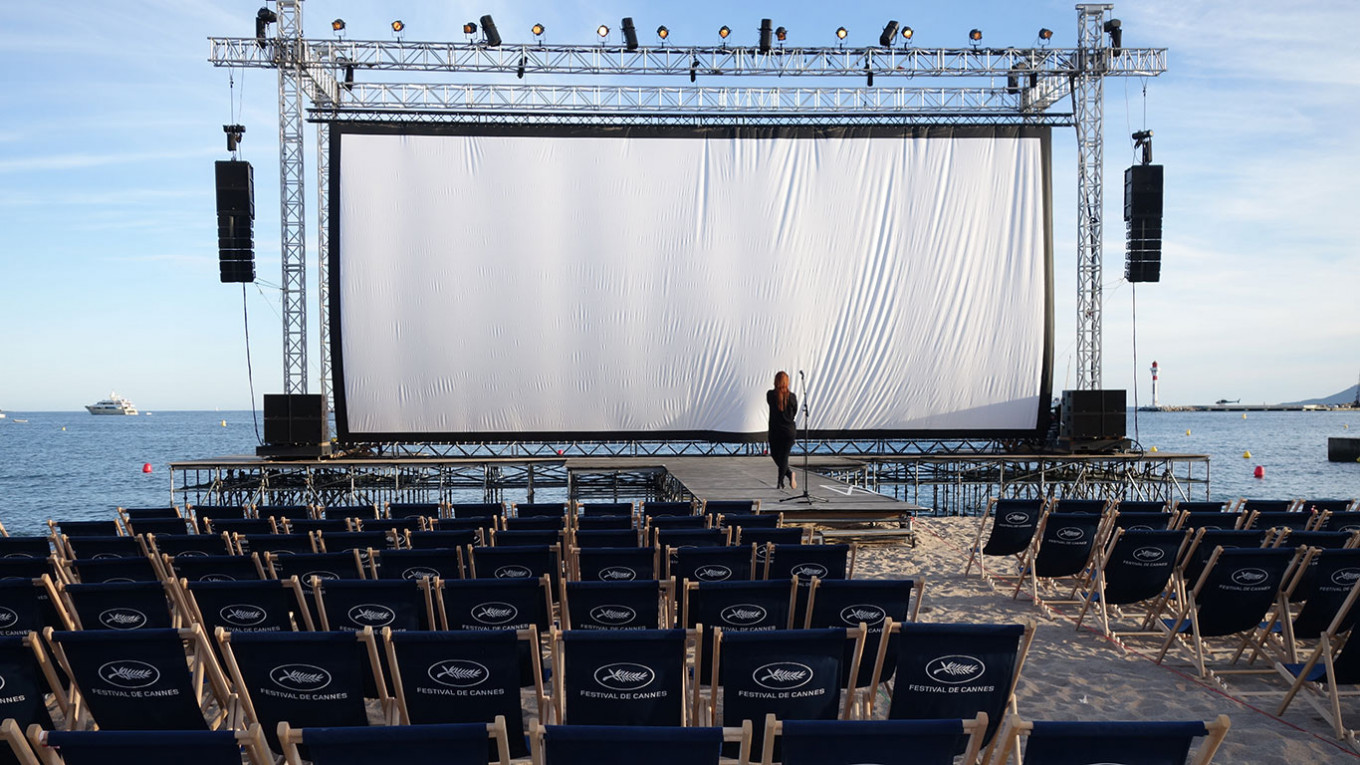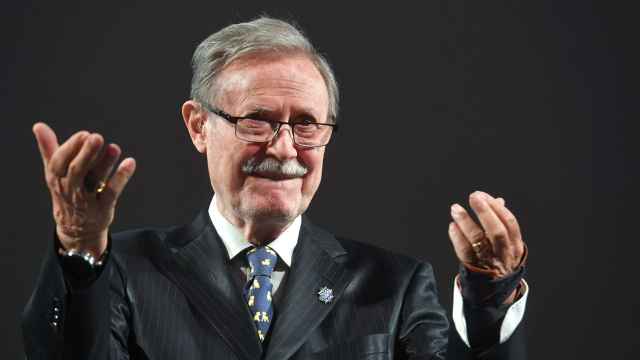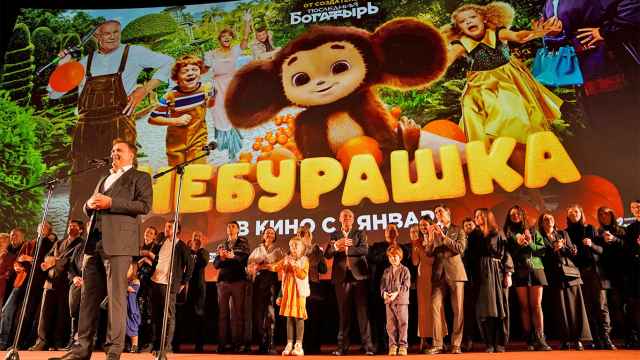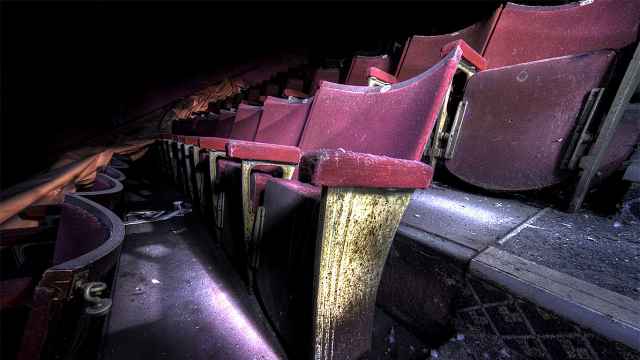“I can’t speak in Russian to my daughter in the street anymore,” an artist living in Rome told The Moscow Times. “And I have no hope that I will be invited to show my works anywhere.”
Since the war began in Ukraine, Russian cultural figures have found themselves locked out of the international cultural scene.
For Russian filmmakers, the sudden change came after the Ukrainian Film Academy launched a petition at the end of February on change.org calling for a comprehensive boycott of the Russian film industry. “The Council of Europe should exclude Russia from the Eurimages funding program,” it read. “Festivals should no longer show films from the Russian Federation. Producers should suspend all contracts and no longer grant any film rights to Russian distributors, and Western distributors should no longer show Russian films or include them in their programs.”
Russian film industry representatives immediately went silent. "We can't comment.” “We are very sorry, but we won't be participating.” “Please read the official announcements about the situation." These were the responses to personal messages and official inquiries. No one wanted to be named.
The Cannes Film Festival also took a stand on the war in Ukraine and banned Russian official delegations at its 75th edition this May. However, while the festival won’t “accept the presence of anyone linked to the Russian government,” they are still welcoming individual filmmakers “who raise their voices to denounce violence, repression, and injustices, for the main purpose to defend peace and liberty.”
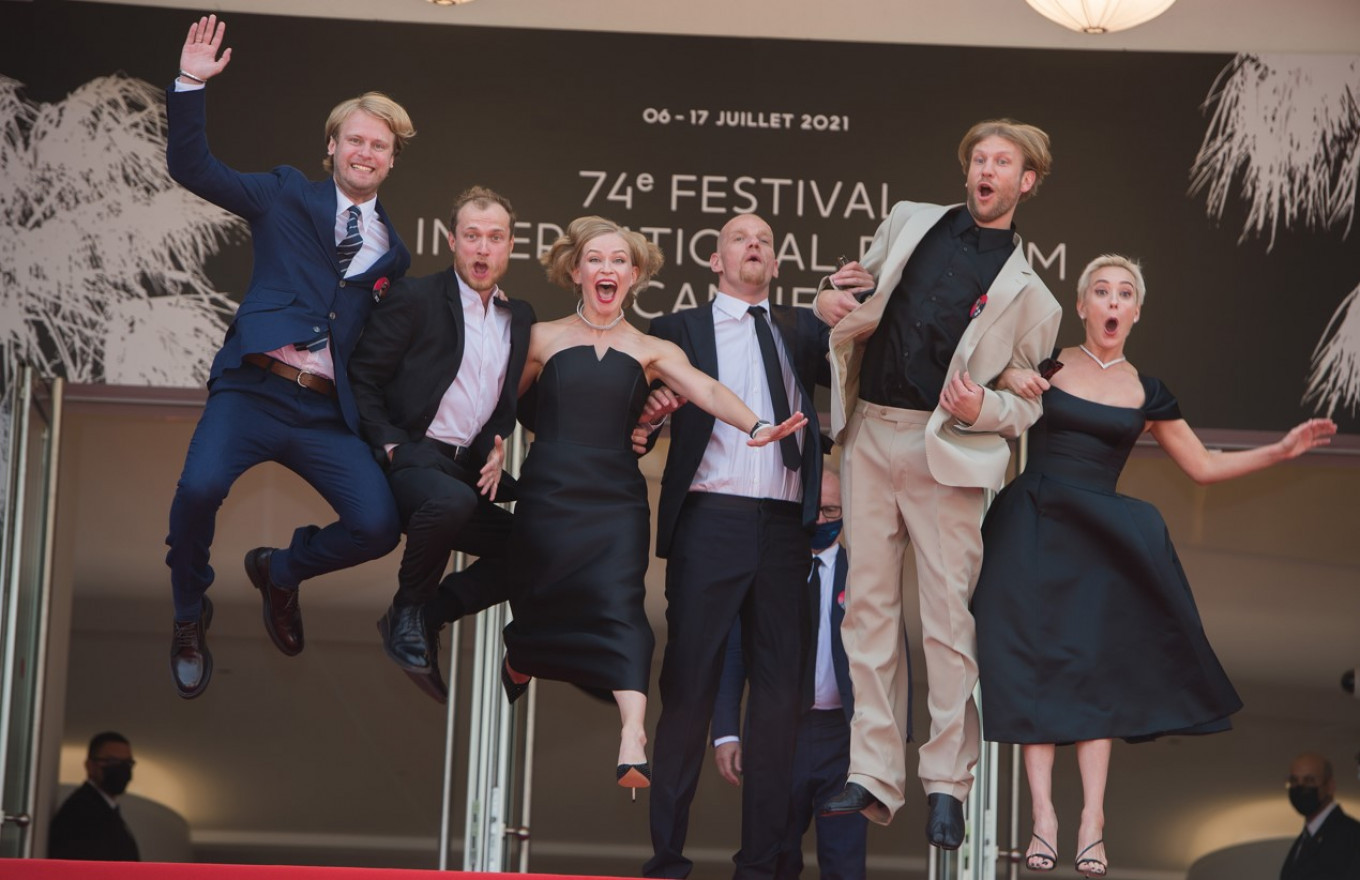
A day later, the Venice Film Festival supported the initiative of the Cannes Film Festival but stated that it was not going to declare a total boycott: "The Biennale is in solidarity with all those in Russia who are courageously opposing the war.” The festival made clear that “for those who oppose the current Russian regime, they will always find a place in the exhibitions of the Biennale, from art to architecture, and at its festivals, from cinema to dance, from music to theater.”
That is not feasible for many filmmakers. The head of a Russian production company — who requested anonymity — told The Moscow Times, “How can I protest when I could face imprisonment? I have children to raise."
The GoEast film festival that focuses on Central and Eastern European cinema had already made changes when Russia annexed Crimea. “Since 2014,” GoEast head Heleen Gerritsen, wrote, “we are firmly on the side of Ukraine. We have not invited any official Russian delegations or supporters of Russia’s occupation policies in Crimea and Donbas since then…we are still inviting individual Russian and Belarusian films, but his year we cut ties with Russian media partners, sponsors and state organizations,” she said.
After the European Film Academy (EFA), which is based in Berlin, was criticized for its "soft statements" against Russian filmmakers, it took a more radical stance and announced that it was going to fully support all boycott demands in the petition put forward by the Ukrainian Film Academy which implies the exclusion of Russian cinema from all festivals. Russian films as a result, will not participate in the European Film Awards this year.
The Berlin festival took a similar stance, saying it will ban official Russian state institutions and delegations as well as “supporting actors of the regime” from participating in the Berlinale “as long as the Russian government is waging this cruel war against Ukraine.” But it drew the line at banning Russian filmmakers, saying to do so would “suppress many critical voices.”
This might seem like an attempt at compromise, but for most of Russian projects it does not change anything. The Russian Ministry of Culture often supports not only big commercial blockbusters, but also independent art-house projects. Even if producers try to attract private investors, it is often impossible to completely cut off state investment.
But even private investment is fraught for Russian filmmakers. For example, the $100 million Kinoprime Foundation funded by Roman Abramovich was heralded as a watershed in the Russian film industry when it launched at Cannes in 2019. It helped fund ambitious art-house films, “Petrov’s Flu” directed by Kirill Serebrennikov. Today, however, Western countries are imposing sanctions on this source of funding as well.
Collateral damage
“Compartment No. 6,” which won the Grand Prix at the Cannes Festival last year, was dropped from a film program by the German cinema company CineStar because its leading actor, Yuri Borisov, is Russian. The director, Juho Kuosmanen, is Finnish, and it was a joint production of German, Russian and Finnish companies. The actors and all the producers, including the Russian producer, have clearly spoken out against the war.
Jakob Kijas, general manager of the German film distribution company and Jamila Wenske, manager of one of the production companies, Achtung Panda! were shocked by this decision. The film about a Finnish woman and Russian man who meet on a long train ride, is “an example of the joint idea, both in the production process and in the artistic message,” Wenske and Kijas said. It is also about “the power and magic that can arise when people meet and get to know each other and have the courage to get involved and listen to each other,” they said.
The irony of this particular film being sanctioned was not lost of them. "We condemn Russia's war of aggression against Ukraine…. But we believe in the connecting factor of culture and film. Culture builds bridges and creates communication spaces where others want to destroy them,” they said.
A Message from The Moscow Times:
Dear readers,
We are facing unprecedented challenges. Russia's Prosecutor General's Office has designated The Moscow Times as an "undesirable" organization, criminalizing our work and putting our staff at risk of prosecution. This follows our earlier unjust labeling as a "foreign agent."
These actions are direct attempts to silence independent journalism in Russia. The authorities claim our work "discredits the decisions of the Russian leadership." We see things differently: we strive to provide accurate, unbiased reporting on Russia.
We, the journalists of The Moscow Times, refuse to be silenced. But to continue our work, we need your help.
Your support, no matter how small, makes a world of difference. If you can, please support us monthly starting from just $2. It's quick to set up, and every contribution makes a significant impact.
By supporting The Moscow Times, you're defending open, independent journalism in the face of repression. Thank you for standing with us.
Remind me later.



